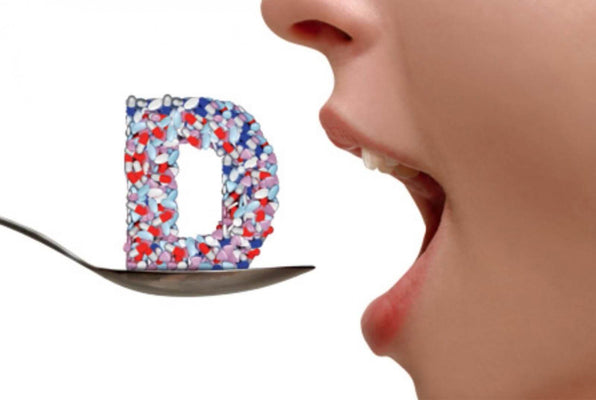The human body produces vitamin D when exposed to sunlight. It is also found in certain types of food and supplements. Vitamin D deficiency is a common problem that can lead to a number of health issues, such as muscle weakness, depression, and osteoporosis. Vitamin D deficiency can be treated with supplements or by spending more time in the sun. A healthy diet should include foods like fortified milk, fatty fish, eggs, and mushrooms.
Vitamin D is a fat-soluble vitamin that is found in numerous foods and dietary supplements. Supplementation with vitamin D has traditionally been recommended to prevent the deficiency from tropic diseases such as rickets and osteomalacia, but conflicting results have been reported for the efficacy of this practice.
Get a free sample pack!What is Vitamin D and Why is it Important?
Vitamin D is a fat-soluble vitamin that helps your body absorb calcium and phosphorus from food sources like milk, cheese, and yogurt. It also helps your body maintain healthy bones by increasing the absorption of calcium from the intestines and mobilizing calcium stores in bones when needed.
In addition to helping with bone health, vitamin D plays an important role in many other areas such as muscle strength and growth development in children.
The body needs Vitamin D for a number of functions including bone strength, muscle contraction, immune system response, and nerve impulse conduction.
Low levels of Vitamin D have been linked to cancer risk as well as other chronic diseases like heart disease and diabetes. While Vitamin D deficiency is rare in most countries due to its common occurrence in food sources such as eggs or fortified milk, it may become more familiar with reduced sun exposure or increased skin pigmentation due to the use of sunscreen or clothing.
What Happens When Your Body Doesn't Make Enough Vitamin D?
The importance of Vitamin D for overall health and wellness cannot be overstated. It's no secret that we're more susceptible to disease when our bodies are deficient in this essential nutrient, but how can we tell if our levels are low?
Everyone is different, and different factors affect our ability to make or absorb vitamin D. Our skin color, age, and even where we live all play a role in how much sun exposure we need to get enough of the sunshine vitamin into our bodies.
If you're worried that you might be deficient in vitamin D, here are some signs to look out for:
- Fatigue or exhaustion
- Muscle weakness or pain
- Joint pain or stiffness
- High blood pressure (hypertension)
- Bone loss/osteoporosis (if you're past menopause)
This can lead to increased risk for disease including osteoporosis, cardiovascular disease, etc.

How You Can Prevent or Help Your Body Recover from Low Vitamin D Levels
Vitamin D deficiency is a common condition. It's estimated that up to 40% of adults are deficient in vitamin D, even in the winter months.
Getting enough vitamin D can be difficult if you don't get enough exposure to sunlight or eat a diet that's rich in vitamin D. Here are some ways to increase your intake:
1) Get outside!
Sunlight contains ultraviolet rays, which are needed by your body to produce vitamin D. If you can't make it outside every day, try to get at least 15 minutes of sun exposure each day during the summer months (or when there's less cloud cover).
2) Eat more fish and dairy products
Fish such as herring and mackerel contain high levels of vitamin D—one serving provides 200% of your daily value! And milk fortified with vitamin D is also a good source of this essential nutrient. Just one cup provides 100% of your daily value!
3) Take supplements
If you're concerned about getting enough vitamin D through diet alone, talk to your doctor about supplements. There are many options available on the market today—just make sure they're made from safe ingredients and don't exceed recommended dosage limits (usually 4000 IU per day).
Vitamins like D3 Gummies or Gummies With Iron And Vitamin C will help reduce tiredness and fatigue. Because iron and vitamin D are two of the more crucial vitamins for our bodies, it is advised to be on the safe side whenever you suspect a deficit.

Why You Should be Supplementing with Vitamin D to Optimize Your Health
Scientists are naturally investigating whether vitamin D supplementation can stop viral infections because vitamin D plays a crucial role in immune system regulation. But is Vitamin D3 beneficial for our children? While a study revealed no difference in the risk of upper respiratory infections, a small trial of schoolchildren indicated that those who took vitamin D supplements were less likely to have the flu than those who did not.
Chewwies now has Multivitamin Gummies which are filled with vital vitamins and micronutrients to meet the dietary needs of both you and your child. Children 3 years of age and older are permitted to consume this product. This serves as the recommended daily allowance for adults as well.


